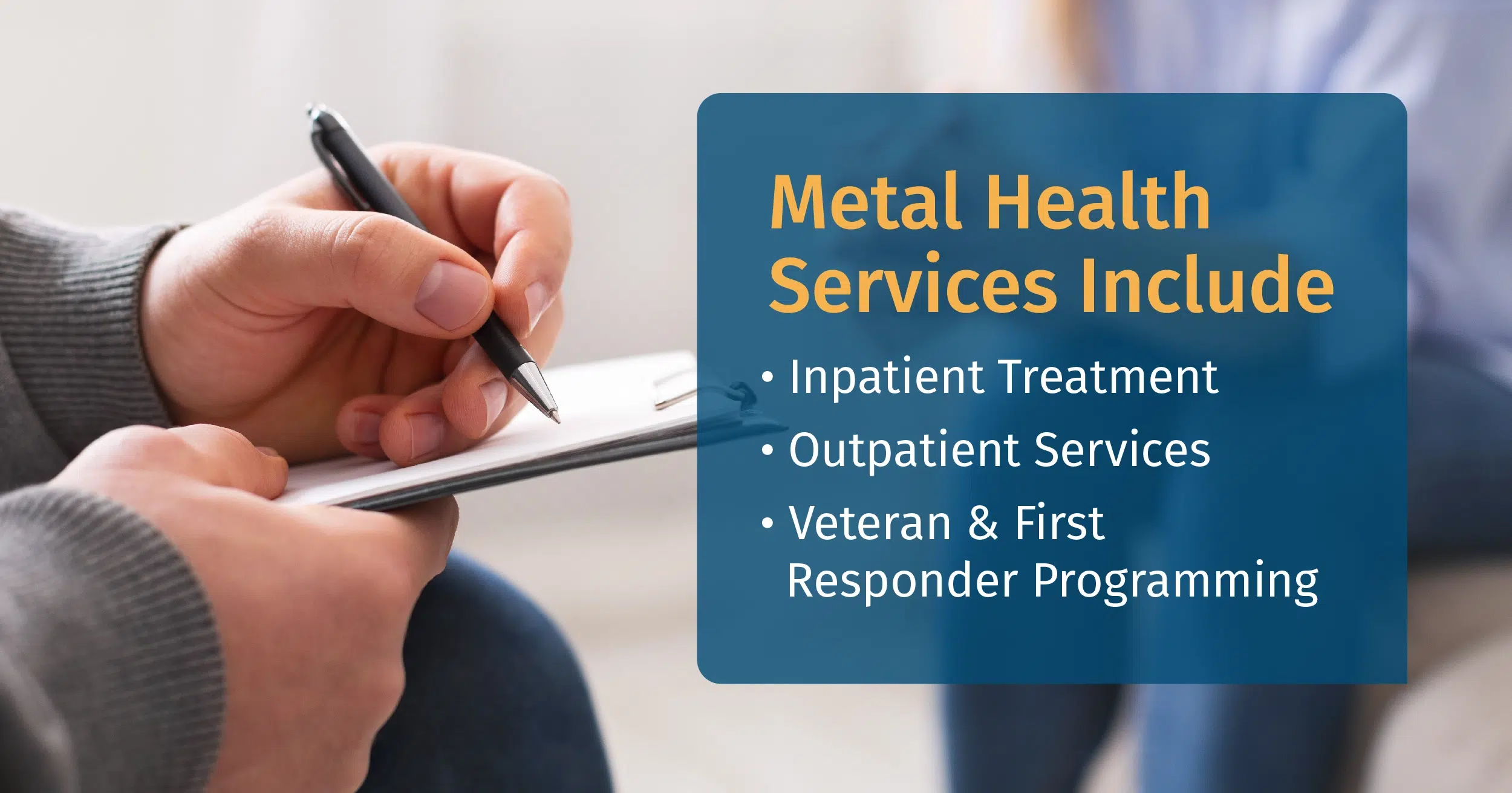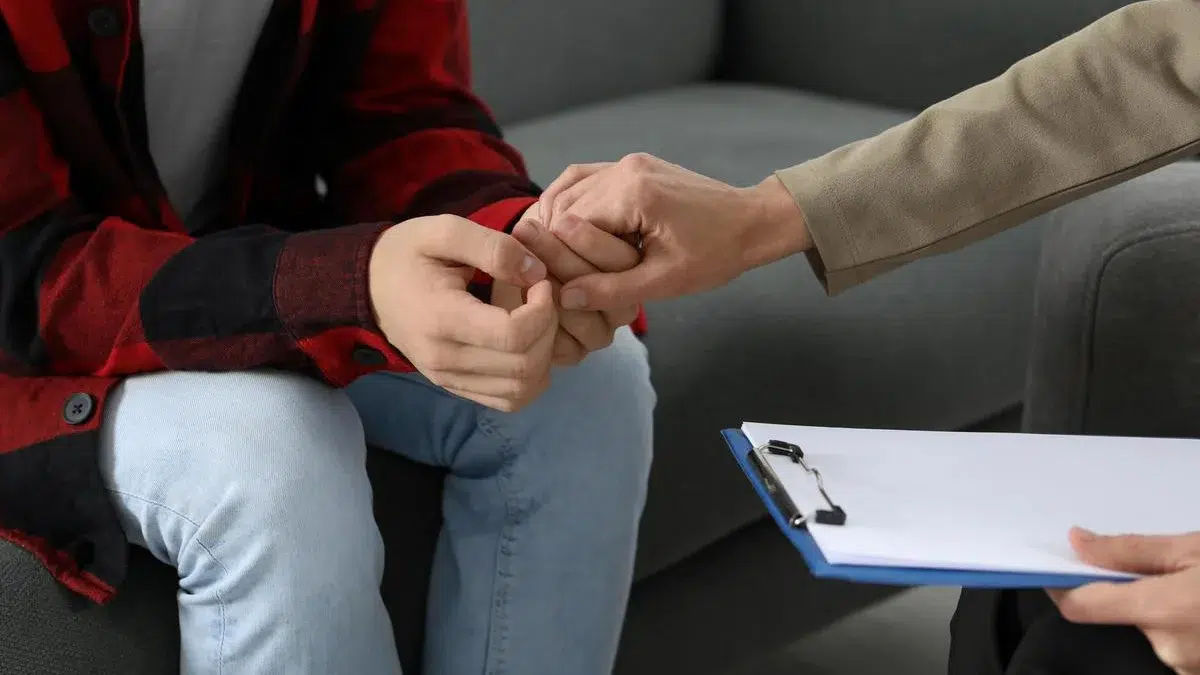
How to Safely Detox From Alcohol
Learn the safe ways to detox from alcohol with The Recovery Team. We offer tips and tricks so you can live a life free from addictions.

Managing a mental health disorder requires dedication and a daily commitment, but you do not have to do it alone. Our extensive range of mental health services is tailored to address a wide spectrum of mental health conditions, providing primary, inpatient, and outpatient care
For over two decades, The Recovery Team has been delivering top-tier mental health rehabilitation for complex illnesses as well as co-occurring disorders. Within our facility, a secure and supportive environment awaits patients as they embark on their transformative journey to recovery. Through evidence-based treatments, our experienced medical staff delivers a standard of care that is both safe and highly effective.
At the Recovery Team, we understand the importance of individualized care and strive to meet all of our patient’s unique needs when it comes to treatment. Our facility offers multiple levels of treatment, including residential and outpatient services. We help thousands of patients each year discover their potential and reach their recovery goals. Contact us to learn more about how we can help you recover.
Managing a mental health disorder requires dedication and a daily commitment, but you do not have to do it alone. Our extensive range of mental health services is tailored to address a wide spectrum of mental health conditions, providing primary, inpatient, and outpatient care. Our approach encompasses customized treatment plans, therapeutic interventions, pharmaceutical support, and holistic alternative modalities.
At the Recovery Team, you can find traditional treatments like CBT and medication management as well as advanced technology treatments such as EDMR or VR therapy. Below, you will find a quick breakdown of services.
After an initial evaluation of a patient’s mental health, our experts will diagnose and customize a recovery plan based on their individual needs, goals, and objectives. Once a recovery path has been set for the patient, they will begin residential or outpatient care.
Through scientifically proven treatments like talk therapy and medication management guided by a professional, they will work to learn the root of their illness to avoid triggers as well as ways to cope with and manage their condition in order to enjoy a fulfilling life.
Residential care offers a secure and supportive environment for healing, addressing a wide range of mental health challenges such as depression, anxiety, PTSD, borderline personality disorder, and more. At this level, patients live full-time at our facility in our comfortable dorms with full access to our many amenities.
Our day treatment programs provide individualized therapy, medication management, support groups, and evidence-based methods to restore and enhance mental well-being. This level of care is the most effective option for individuals who are looking to transform their lives and reintegrate into society.
Through our flexible outpatient mental health services, patients can receive care while still going about their daily lives. By scheduling appointments with therapists, specialists, prescribers, and physicians, our team of experts can address your mental health requirements without the necessity of residential treatment.
Our specialized rehabilitation programs for veterans are designed to cater to the distinct requirements of the courageous individuals who have served our nation and may be grappling with the aftermath of deployment and combat experiences. Learn more about our services for veterans as well as first responders.
The majority of treatment services incur minimal to no out-of-pocket expenses, contingent upon your insurance plan. Our dedicated insurance team diligently confirms your coverage, benefits, and prerequisites to guarantee medical necessity and reduce financial burdens.
To discover your insurance eligibility for treatment at our facility, let our insurance professionals handle the verification process. They can speak with your insurer directly to unveil the full extent of your coverage options.
From post-partum to trauma-inflicted depression, The Recovery Team works to heal all types of depression. Our skilled medical professionals help patients manage and overcome their depression through therapy and medication. These evidence-based practices have helped thousands of patients at our facility reach recovery. We treat a large variety of depression symptoms.
If you or a loved one are struggling with depression, contact a counselor to discuss treatment options and verify insurance.
If you’re grappling with a panic disorder, anxiety attacks, or an ongoing sense of unease, relief is available through our evidence-based anxiety treatments. Our team of experienced therapists can provide you anxiety medications such as benzodiazepines and beta-blockers to help stabilize your mood while you engage in therapy sessions.
The combination of anti-anxiety medications, therapy, and comprehensive support will help alleviate the symptoms of anxiety you’re facing. Below are common anxiety symptoms that can be relieved through treatment.
If you or a loved one is struggling with these symptoms, learn more about treatment by contacting one of our counselors, available 24/7 at (800) 817-1247.
The highly skilled medical experts at The Recovery Team possess the expertise to accurately diagnose individuals who may be grappling with a range of bipolar disorders, including Bipolar I, Bipolar II, as well as those exhibiting psychotic features.
If you or a loved one is struggling with bipolar disorder, our facility offers evidence-based treatment designed to decrease symptoms like mania and depression. Our comprehensive approach seeks to enhance the overall quality of life for individuals impacted by bipolar disorder by addressing these symptoms with precision and care.
If you or a loved one is battling the symptoms of Bipolar disorder, discover top-tier treatment at The Recovery Team. A medical professional will work closely with you to help manage symptoms through therapies and medication. Learn more about treatment by speaking with a counselor.
The co-occurrence of mental health disorders is a prevalent phenomenon, often requiring specialized attention and care. At The Recovery Team, we understand that each individual’s journey is unique, and their diagnostic history plays a pivotal role in their mental health challenges.
Our dual-diagnosis treatment program is meticulously tailored to address this complexity, recognizing that the intersection of multiple mental health conditions necessitates a personalized approach.
If you struggle with a mental health disorder, consider speaking with one of our counselors about treatment options and insurance. We are available 24/7 to answer all your questions.
If you or a loved one is facing mental health challenges, don’t hesitate to take the first step toward healing and recovery. At The Recovery Team, our compassionate and experienced counselors are here to support you on your journey to better mental health.
Our facility offers a safe and secure environment ideal for healing, with a team of professionals to guide you every step of the way. Through scientifically proven treatment and holistic care, you can work to overcome or manage your mental health condition at The Recovery Team.
We encourage you to reach out to our team today to discuss treatment options, ask any questions you may have, and discover how we can provide the personalized care you deserve.
Contact us at (800) 817-1247 to take that important step towards a healthier, happier life.

Learn the safe ways to detox from alcohol with The Recovery Team. We offer tips and tricks so you can live a life free from addictions.

Can grief cause alcoholism? The Recovery Team explains the connection between grief and alcohol addiction.

The Recovery Team explains the effects of alcohol on pregnancy and the importance of recovery before pregnancy.